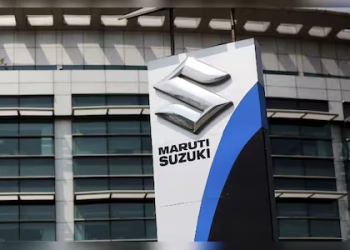BVNK co-founders (from left) Donald Jackson, Jesse Hemson-Struthers and Chris Harmes, at the company’s San Francisco office.
BVNK
Citi has invested in stablecoin infrastructure company BVNK, the startup told CNBC on Thursday, as major U.S. banks expand their presence in cryptocurrencies and digital assets.
Stablecoins are a type of digital asset tied to fiat currency and backed by real-world assets like bonds. The two largest are USDC and Tether, which issues USDT.
BVNK’s core technology is actually a payment rail intended to facilitate stablecoin transactions globally, allowing customers to transfer money from fiat currency to cryptocurrency and vice versa.
The company declined to disclose how much Citi invested or its current valuation. But Chris Harmse, co-founder of BVNK, told CNBC in an interview that its valuation is higher than the $750 million publicly disclosed in its last funding round.
The investment was made by Citi Ventures, the venture capital arm of Citi Group.
Stablecoins, once just a tool for people to quickly trade with other cryptocurrencies like Bitcoinare now seen as a potential key tool for cross-border transactions due to their speed of sending and receiving, low cost and 24/7 settlement.
According to Visa, there have been nearly $9 trillion in stablecoin transactions over the past 12 months, while the current valuation of all stablecoins in existence stands at over $300 billion, according to data from Coinmarketcap.
American growth
BVNK’s Harmse said the company is seeing momentum, particularly in the United States, which has seen the fastest growth over the past 12 to 18 months thanks to what is seen by the crypto industry as a more favorable regulatory environment.
Earlier this year, the United States passed the GENIUS Act, a bill designed to regulate and bring more clarity to the stablecoin market.
“With the passage of the GENIUS Act and regulatory clarity, you are seeing an explosion in demand for construction on stablecoin infrastructure,” Harmse told CNBC.
BVNK’s technology can be used by customers to pay suppliers, contractors or merchants in other countries. The company is looking to expand its customer base, including digital-only banks or neobanks that can use stabelcoins for their primary checking account, Harmse said.
The co-founder declined to go into detail about the company’s work with Citi because it is “too early to announce” but noted that the Wall Street bank has been strengthening its cross-border payments services.
“U.S. banks at the scale of Citi, because of the GENIUS Act, are putting their weight behind… investing in leading companies in the space to ensure that they are at the forefront of this technological change in payments,” Harmse said.
Citi has signaled its move into crypto this year. CEO Jane Fraser said in June that the company was considering issuing its own stablecoin and wanted to offer custody services for crypto assets.
BVNK has “experienced fluctuations in profitability” as the company has invested in growth, Harmse said, adding that the company is on track to be profitable next year. BVNK is also supported by Coinbase and Tiger Global.
The startup operates in a highly competitive space with other newcomers like Alchemy Pay and TripleA and established players like Ripple trying to get a piece of the cross-border digital money pie.
Wall Street welcomes crypto
Citi is not alone in adopting digital assets among major US banks and financial institutions.
JPMorgan Chase launched its own stablecoin-like token called JPMD this year. The bank also made the decision this year to allow its customers to purchase Bitcoin.
Banks have been exploring how to use blockchain, a technology originally developed to support bitcoin, to reduce costs and speed up transactions of all kinds. Part of this involves “tokenization,” which broadly means the idea of issuing a digital token that represents something like a deposit.
Bank of New York Mellonfor example, explores tokenized repositories. HSBC has already launched a tokenized deposit service.










